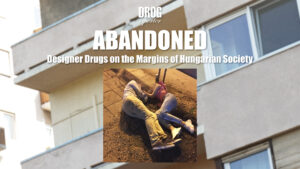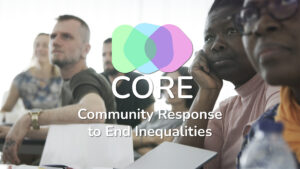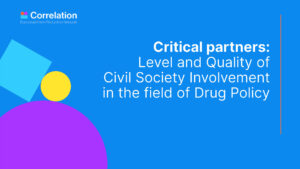I agree with Carl Hart (read here!) that people who use psychedelics should not look down on stimulant or opiate users. Using different drugs doesn’t make them better or more virtuous persons. But I disagree with claims that methamphetamine or heroin is no more dangerous than cannabis or LSD.
First of all, I have to admit that I have experience with both stimulants and psychedelics. “Psychedelic exceptionalism” is far from me. I believe that it does not make us a better person if we prefer one drug over the other. I despise the smugness of some cannabis activists who claim that what they smoke is an herb and not a drug, setting themselves apart from those “junkies” who use “hard drugs”. I particularly dislike the stupidity of the natural vs. synthetic argument: the risks of a drug have nothing to do with it being a plant or a synthetic powder. And I am also tired of the elitism I experience among some psychedelic folks, with no sensitivity to social inequalities underlying drug harms.
I believe that many harms defined as “drug-related” are not drug-specific but are the consequences of the unfair and unequal positions people occupy in human society, often invisible for even those who investigate drugs with scientific rigour. Some of these harms are generated by the disastrous way governments deal with drugs, sweeping them under the carpet of the criminal underworld.
I always found the “Before-After” images, distributed by police about methamphetamine users, very misleading and stigmatising. What these pictures never show is poverty, childhood abuse and trauma, homelessness and social isolation caused by criminalisation and stigma. I agree with professor Hart that we often fall victim to the optical illusion that the users of some drugs are all loners, when in reality there are many highly successful people using the same drugs who are completely invisible to the public.
The real risks of mind-altering substances have often nothing to do with the harms associated with them by the public, not to mention drug classification systems created by law makers. However, I do believe that not all drugs are equally dangerous.
In my 20s I smoked cannabis almost every single day. Sometimes I felt the downsides of it but I never experienced any serious harms. I followed my own rules: no smoking during working days, only evenings and weekends. I also tried amphetamine-type (and other) stimulants and I thought it was easy to control my own use. And indeed it was, for a while. I only used stimulants occasionally. Until I reached a difficult period in my life, when I realised I don’t use drugs for recreation anymore, but to ease the stress and pain of everyday existence. I was hooked on mephedrone for several months, continued using it despite the harmful consequences – which were much worse than anything I experienced from cannabis use, both physically and mentally. Intense periods filled with euphoria were followed by dark and depressed days, and in the end I felt I was deep down in the rabbit hole. I could luckily overcome this difficult period without causing too much harm to myself or others around me. Others, less privileged than me, with no strong social network, were not so lucky.
I don’t blame mephedrone for my problems. I think it is just a tool, you can use it for good or bad. I have used stimulants since then, without becoming dependent. I don’t believe in the dogma that “once you are an addict, you are an addict forever”. But I had to learn by my own mistakes that some tools have definitely greater potential to harm yourself with than others. Especially if you feel lonely or depressed.
I have never had the same problems with psychedelics, which have virtually no addictive potential and are by their nature unfit to be used as escape pods. In my experience, psychedelics force you to face reality and deal with your problems rather than escape from them.
You may say that I am biased, and my experiences cannot be generalised. True. But there are studies comparing the risks and harms of drugs, done by scientists who used statistical methods to avoid bias and control for confounding factors. One of them is David Nutt, who was sacked from the advisory board of the British government for saying that riding a horse is riskier than MDMA use.
If you look at those carefully designed studies that compare the risks of the use of the most popular drugs and rank them according to harms (this is the latest from Australia), you will see that alcohol, heroin, cocaine, methamphetamine, and tobacco always end up on top of the list while psychedelics are on the bottom. Some of the harms may be explained by the legality of the drugs or the social status of drug users but some others cannot. For example, regardless of these political and societal factors, tobacco and heroin are way more addictive than LSD or MDMA, the withdrawal symptoms of alcohol and heroin are way more intense than those of cannabis, and way more people die from an opiate overdose than a caffeine overdose.
Other scientists, for example Jonathan Caulkins and Peter Reuter, deny that there is a comprehensive single scale against which all drugs can be compared. Maybe they are right. But the lack of a reliable measuring tool does not mean that differences in the risks and harms of drugs do not exist. And even if some individuals can use methamphetamine or heroin relatively safely, without causing much harm to themselves and others, we should see that statistically, for the vast majority of people, these drugs have a way higher potential to cause detrimental harms than, let’s say, cannabis or magic mushrooms. This is no “psychedelic exceptionalism” – this is just being honest with ourselves. And there is no honest drug education without addressing these differences.
This recognition should not lead to arrogance but to compassion. Neither those who use drugs without many problems, nor those who fight their inner demons need our judgment – they need our support, the second group even more than the first. Most of my own work is about supporting the fight of the most vulnerable groups of people who use drugs for their rights. We should decriminalise the use of all drugs and make sure people who decide to use them have a safe, regulated supply. Some of them need help to work on their childhood traumas and rebuild connection to their selves. Psychedelic-assisted psychotherapy has a lot of potential to help them in this process but only a very few people living on the margins of society have access. Now, this is the main problem I see with psychedelics as an elitist project. These substances should not only get to mainstream medicine but reach out to those who are in the greatest need, often living in deep poverty and with no health insurance.
Peter Sarosi






